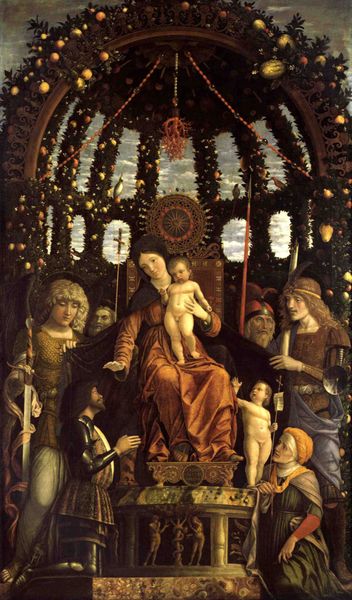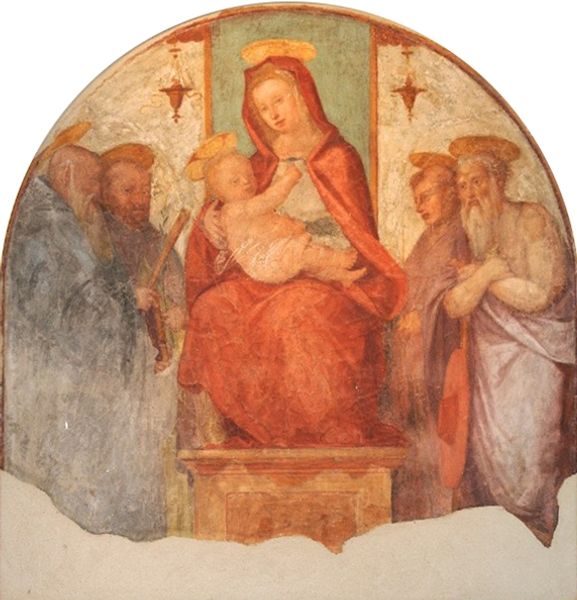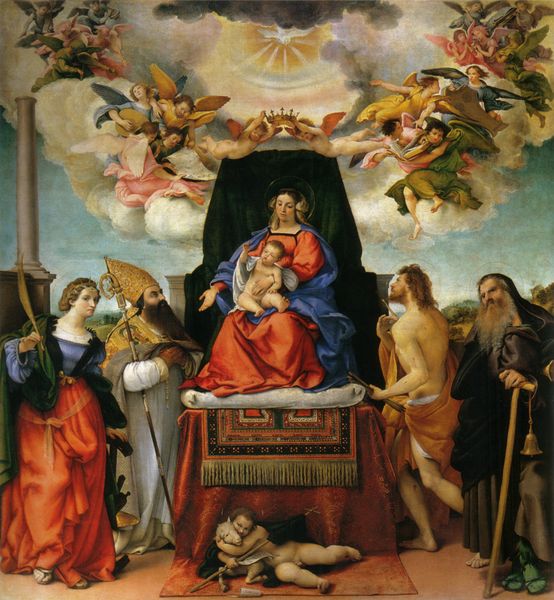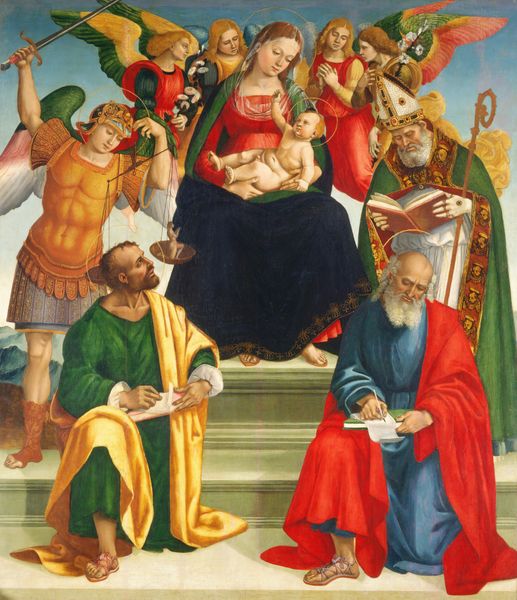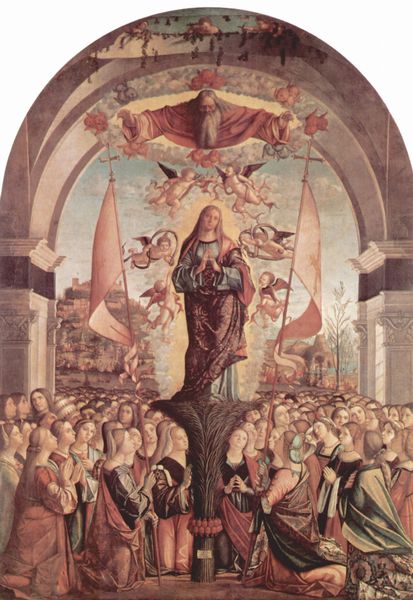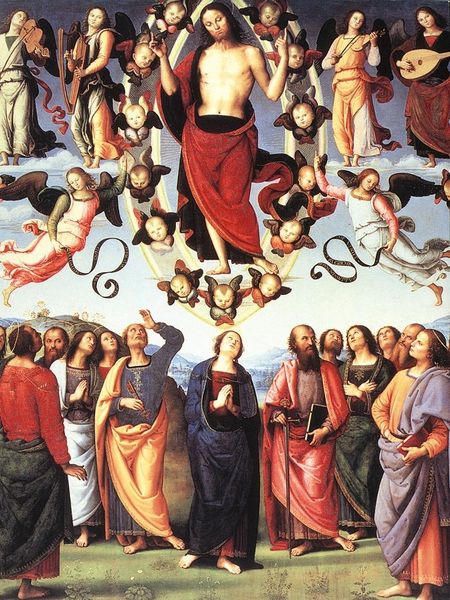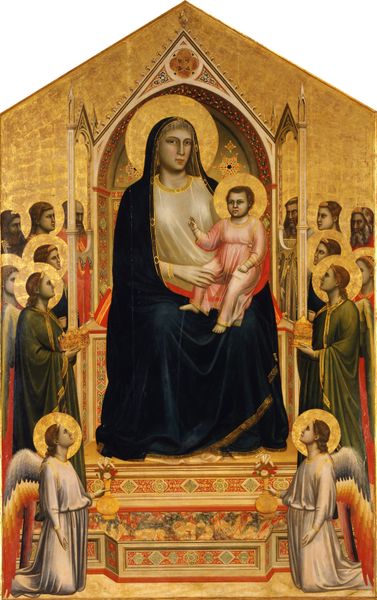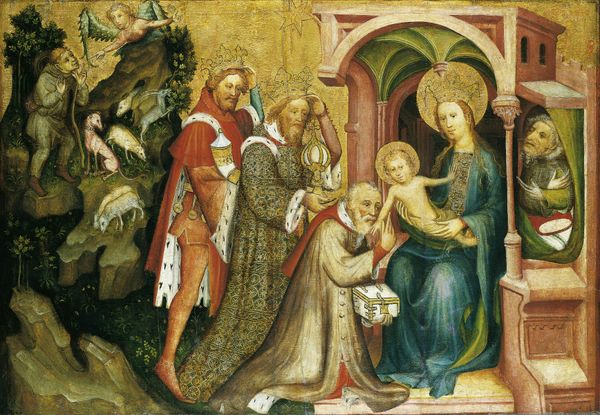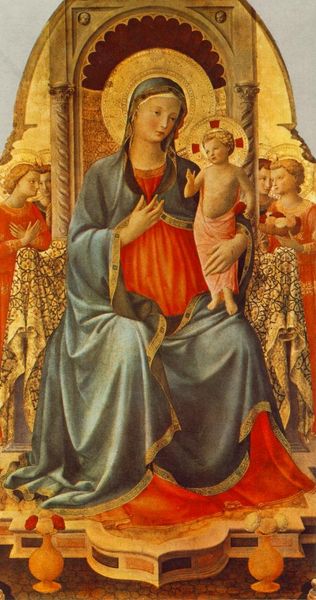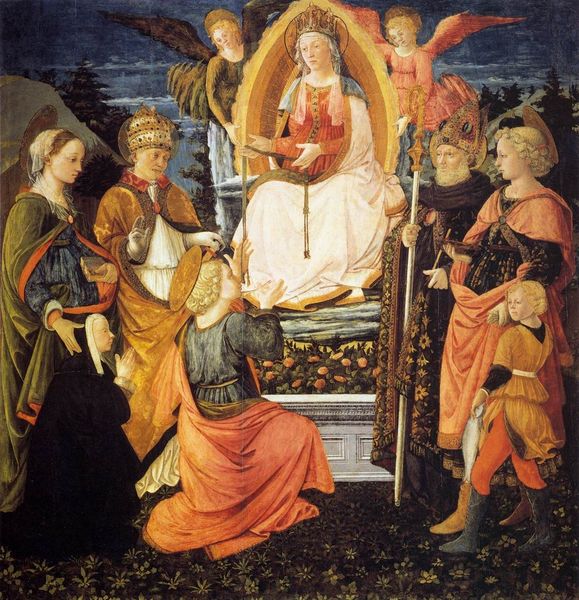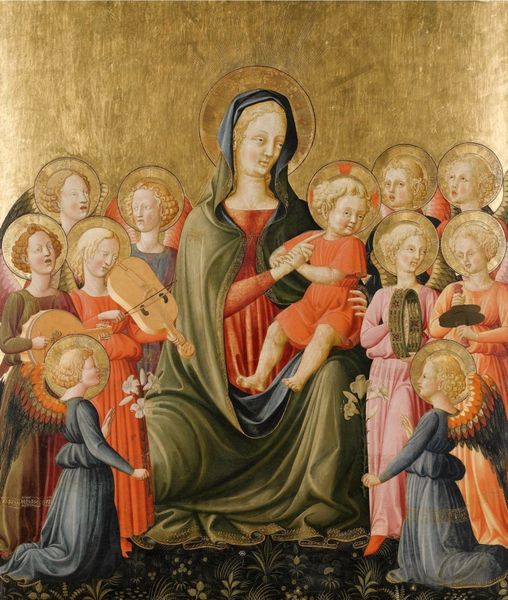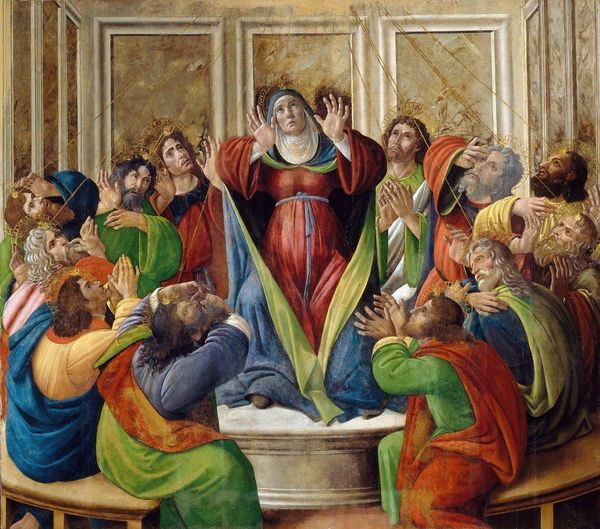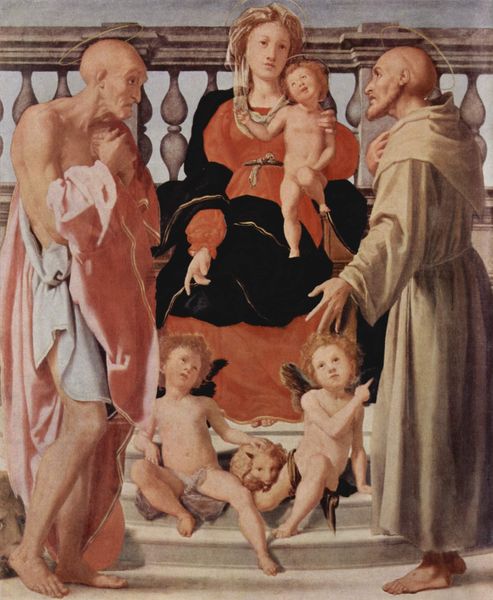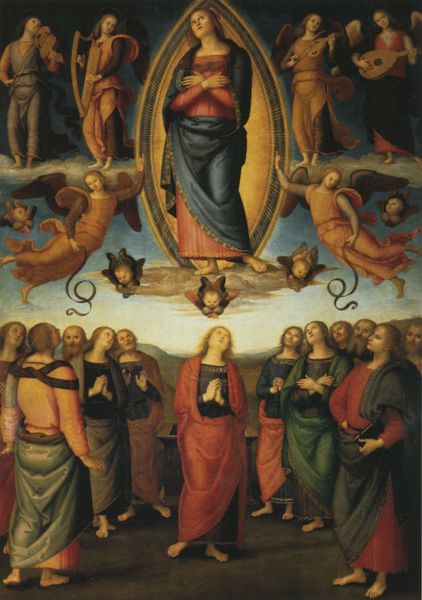
Madonna with saints St. John theBaptist, St. Gregory I the Great, St. Benedict 1506
0:00
0:00
oil-paint
#
portrait
#
high-renaissance
#
allegory
#
oil-paint
#
holy-places
#
figuration
#
madonna
#
oil painting
#
christianity
#
painting painterly
#
history-painting
#
italian-renaissance
Copyright: Public domain
Andrea Mantegna painted this ‘Madonna with saints’ using tempera on wood, sometime in the late 15th century. Tempera is a very particular medium, made of pigments bound with egg yolk. It dries quickly, so the artist would have needed to work fast, building up the painting with many small brushstrokes. The surface has a distinctive matte finish, and the colors stay remarkably vibrant. It was a demanding medium, requiring the artist to be precise and attentive. Mantegna was clearly a master of tempera, but also a skilled designer. Look at how he created a rich scene using a limited range of colors, mainly reds and browns. Also notice the careful way he has arranged the figures in the composition, using line and perspective to create a sense of depth. This wasn't just the application of paint, but a highly refined process of design. The material and the making are inseparable from the work’s cultural significance. ‘Fine’ art like this was typically produced by a collective of individuals working under a master. So, think about all the labor involved in this image: from grinding the pigments to applying the final touches.
Comments
No comments
Be the first to comment and join the conversation on the ultimate creative platform.
